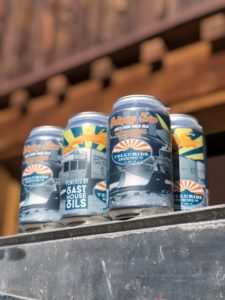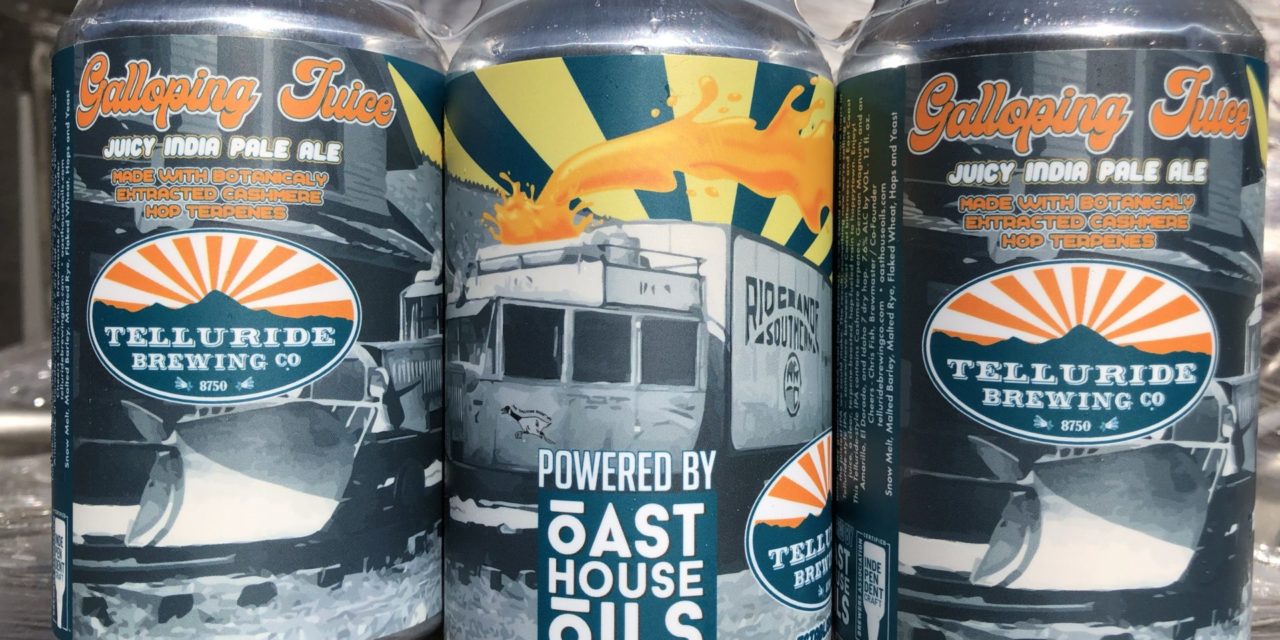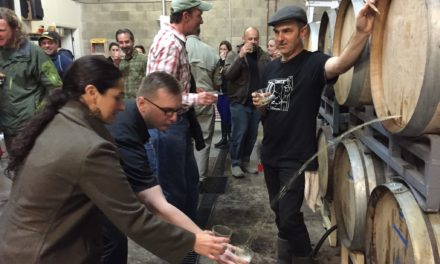Chris Fish had never brewed with hop terpenes until this past fall, when his friends at Station 26 Brewing Co. in Denver suggested including the ingredient in a collaboration beer they were making. In the months since, Fish, brewmaster and co-founder of Telluride Brewing Co. in Telluride, Colo., has become so enamored with the product that, in March, the brewery is releasing what it believes to be the country’s first production beer finished exclusively with hop terpenes in place of dry-hopping.
 “I consider myself a pretty traditional brewer in our process and in our use of ingredients,” says Fish, who’s been brewing professionally for more than two decades. “I keep seeing these new products come out, especially in the hop world, but I’ve never been impressed by anything to the point it’s made me want to change the way I go about doing things.” The first time he tried hop terpenes, however, “It was mind-blowing—just a game-changing moment,” he says. “It was a flavor from hops that was so pure, so clean, and so authentic.”
“I consider myself a pretty traditional brewer in our process and in our use of ingredients,” says Fish, who’s been brewing professionally for more than two decades. “I keep seeing these new products come out, especially in the hop world, but I’ve never been impressed by anything to the point it’s made me want to change the way I go about doing things.” The first time he tried hop terpenes, however, “It was mind-blowing—just a game-changing moment,” he says. “It was a flavor from hops that was so pure, so clean, and so authentic.”
Telluride Brewing sources its terpenes—essentially, aromatic essential oils extracted from raw plant material—from Oast House Oils, which launched last May as a division of Isolate Extraction Systems Inc. in Louisville, Colo. Rob Kevwitch, director of research and development with Oast House, was brought on board to help commercialize hop terpenes and to ramp up production at the company’s Colorado headquarters.
“When you dry hop, depending on the final gravity of the beer and the alcohol content, you extract somewhere between 60 and 75 percent of the total terpenes. [Using terpenes directly,] we pull nearly all of them out—in the 95 percent range. It reduces our hop usage by so much,” Kevwitch says.
Working with Oast House on production trials, Fish brewed a series of small-batch beers finished with a combination of dry hopping and terpenes, and dialed in his process from there. “The first beer we dry-hopped at maybe one-quarter to one-third of the amount I would normally use,” he says. “We cut that in half for the second batch, and the third we used a minimal amount of hops.”
His yield increased in proportion to the decreasing hops. Brewing into a 30-barrel fermenter, Fish estimates he got two extra barrels of beer from the first batch, and about a three-barrel increase on the second.
Telluride’s new production beer—a juicy, clear IPA called Move Me Brightly—is finished entirely with hop terpenes, which are added in-line after the centrifuge and before the beer goes into a brite tank for packaging. “I’m not worried about hop diacetyl, and we don’t have to sit on the fermenter for massive amounts of time [during the dry-hopping process],” Fish says of the added benefits. Which leads to the question: Is there a downside?
Says Kevwitch: “The brewing industry is definitely traditional, and the barrier to adoption of new materials is sometimes high. A lot of people don’t want to take a material that’s perfectly good, like hops, do something [to] them, and then add them back in.
“But at the end of the day, it’s all about how it tastes. I haven’t had a beer that compares to the flavors that we’re getting from these beers,” says Fish. “This is a huge innovation in our industry.”











